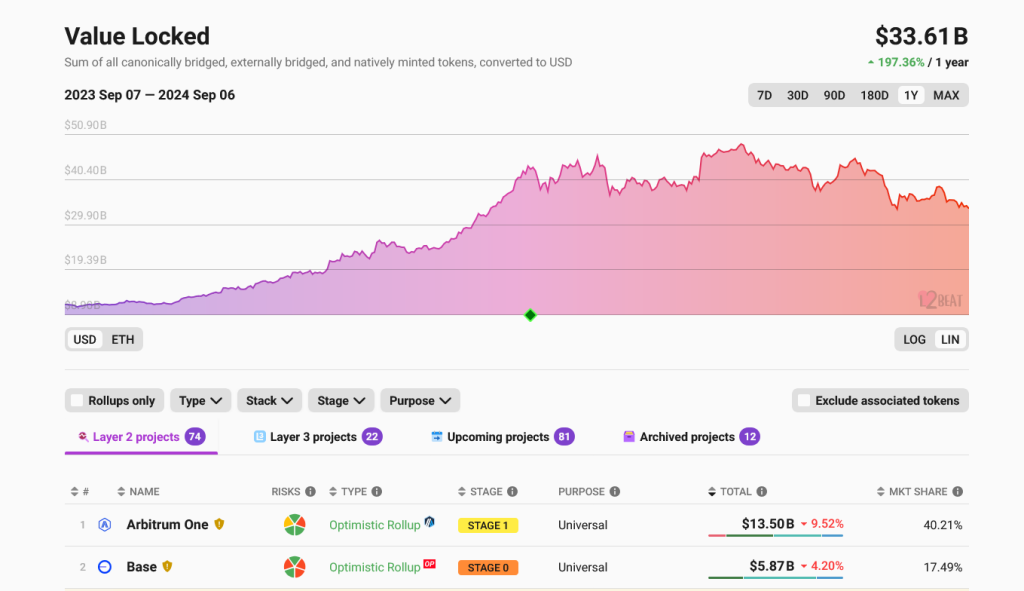As Ethereum developers work hard to develop on-chain scaling solutions, including sharding, Layer 2 is gaining momentum. L2BeatAs of September 6, all of these Layer 2 scaling solutions managed nearly $34 billion.

As popular as they are, most of them are not only centralized but also have security issues. Recently, the OP mainnet had to revert to a centralized, fail-safe system after vulnerabilities were discovered in the decentralized version.
Ethereum and its Layer 2 have flaws
In light of these weaknesses, Justin Boons, the founder and CIO of Cyber Capital, a venture capital firm, has increasingly taken aim at Ethereum and, more specifically, its layer 2 platforms. In an article on X, the founder supports that Layer 2s like Arbitrum and Base are fundamentally flawed and centralized services.
Boons criticized X, pointing out the shortcomings of Ethereum developers. The founder accuses them of not evolving from the start and the “parasitic” nature of layer 2 solutions. Despite their benefits, Boons claims that these off-chain solutions create an unhealthy dependency.
Interestingly, the founder went on to say that Ethereum is becoming very dependent on these solutions, even though they do not adhere to the guiding principles governing blockchain: decentralization.
The venture capitalist is convinced that Ethereum’s layer 2s are taking advantage of the mainnet’s popularity not to drive adoption but to profit from it.
Their decision to sacrifice decentralization (and therefore security) will ultimately only serve to undermine the ecosystem as a whole. According to him, platforms like Base, Arbitrum, and OP Mainnet should not be considered “extensions” of the base layer due to their inherent weaknesses.
Dash will benefit from decentralization from the start
While Boons criticized Ethereum and its dominant scaling options, the founder backed Dash, one of the first blockchain platforms. Unlike off-chain solutions, Dash, the venture capitalist said, prioritized scaling from the beginning.
Boons also chose the blockchain’s decision to select a decentralized governance approach. Its founder added that this decision would “benefit” him in the days to come.
Despite the challenges of Layer 2, Ethereum developers are working to refine the mainnet. Ethereum 2.0 will offer on-chain scaling without sacrificing security and decentralization in a series of upgrades, from Verge to Splurge.
At the same time, the approval of Ethereum spot ETFs is a huge endorsement of the network. While the U.S. Securities and Exchange Commission (SEC) has yet to publicly approve ETH as a commodity, like Bitcoin, the Commodity Futures Trading Commission (CFTC) considers it a commodity.
Despite being one of the earliest platforms, Dash has fallen into obscurity in recent years. It is not among the top 100 most profitable networks and is facing liquidity issues after being delisted from some centralized exchanges like HTX.
Main image from Canva, chart from TradingView




